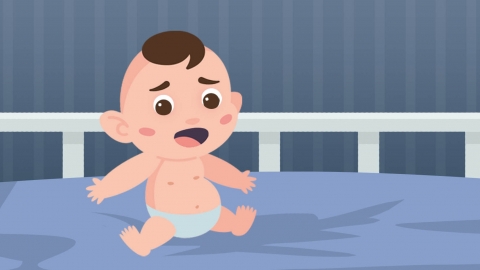What should I do if my baby has a cold and a hoarse voice?
Generally, hoarseness refers to a raspy or strained voice. A baby's hoarseness during a cold may be caused by insufficient water intake, dry air, acute laryngitis, acute tonsillitis, acute epiglottitis, and other factors. Treatment options include general care and medication under a doctor's guidance. If symptoms persist, timely medical consultation is recommended. Detailed explanations are as follows:

1. Insufficient water intake
When a baby's body lacks sufficient water, the vocal cords may not be adequately lubricated and can become damaged due to friction, possibly resulting in hoarseness. It is important to ensure the baby drinks enough water regularly, especially during dry seasons or after physical activity.
2. Dry air
Excessively dry air may cause the mucous membranes in the baby's throat to dry out, depriving the vocal cords of their natural moisture and protection, which may lead to hoarseness. It is recommended to maintain humid indoor air, using a humidifier if necessary, and avoid keeping the baby in air-conditioned or heated rooms for prolonged periods.
3. Acute laryngitis
Acute laryngitis is commonly caused by viral or bacterial infection, often occurring after a cold. Inflammation affecting the vocal cords may lead to vocal cord congestion and swelling, restricting vibration during phonation and causing hoarseness. Symptoms such as fever and cough may also be present. Under medical guidance, medications such as ribavirin granules, amoxicillin-clavulanate potassium dry suspension, and compound honeysuckle granules may be used for treatment.
4. Acute tonsillitis
Acute tonsillitis is usually caused by bacterial or viral infection. When the inflammation spreads to the larynx, it may affect the vocal cords, resulting in the aforementioned symptoms. Sore throat and difficulty swallowing may also occur. Patients may take medications such as cefaclor granules, Lanqin oral liquid, and ibuprofen suspension under a doctor's advice.
5. Acute epiglottitis
Acute epiglottitis is typically caused by bacterial infection and may occur secondary to a cold. Swelling of the epiglottis may narrow the laryngeal cavity, affecting voice production and causing hoarseness in the baby. Symptoms such as difficulty breathing and general weakness may also accompany the condition. Patients may follow medical instructions to use medications such as amoxicillin granules, dexamethasone acetate tablets, and Qinghou Liyan granules for treatment.
In daily life, maintaining a balanced diet, proper nutrition, moderate exercise, and enhancing physical immunity can help reduce the occurrence of upper respiratory infections such as colds.





